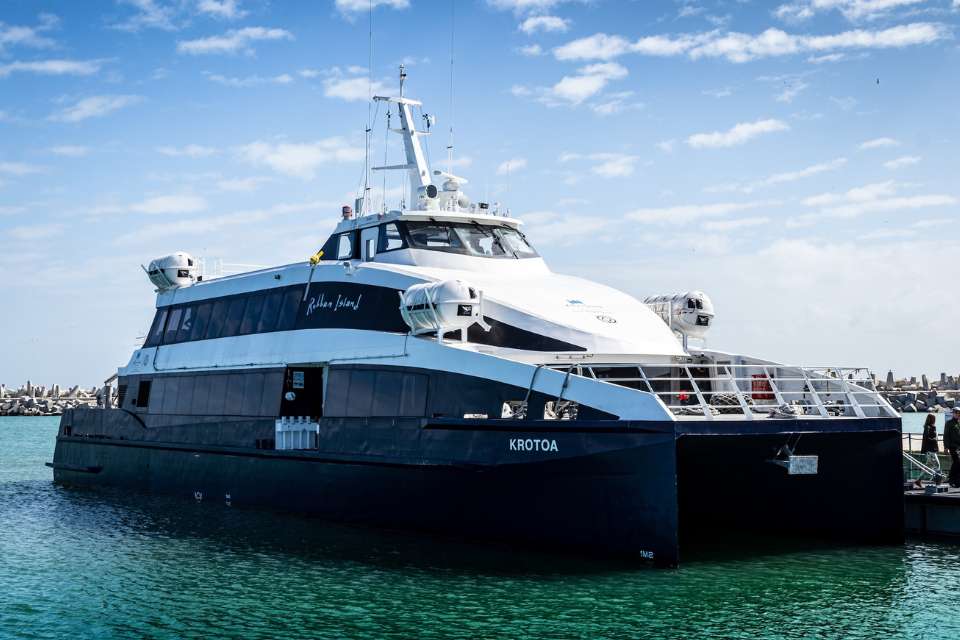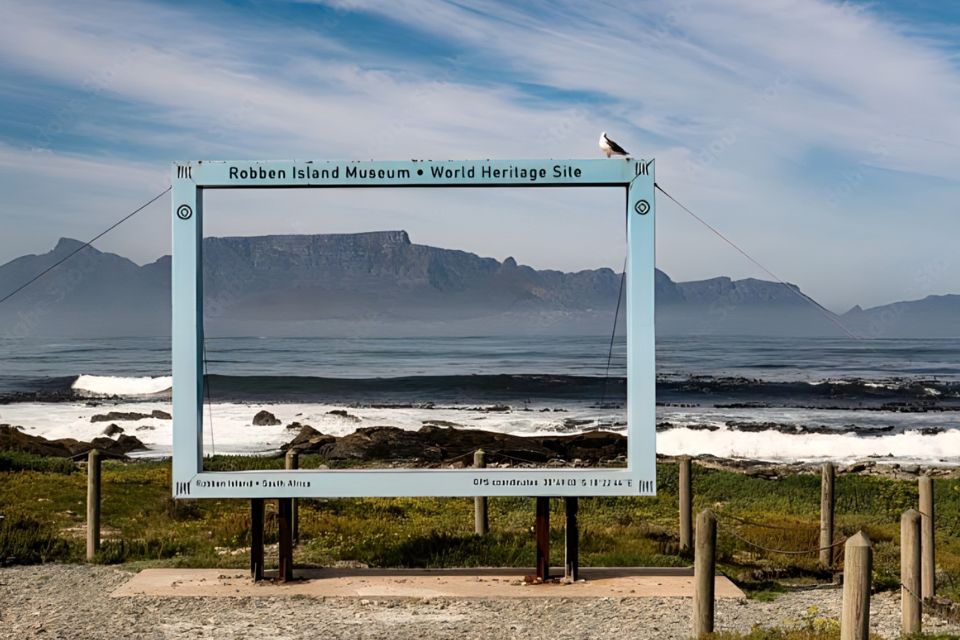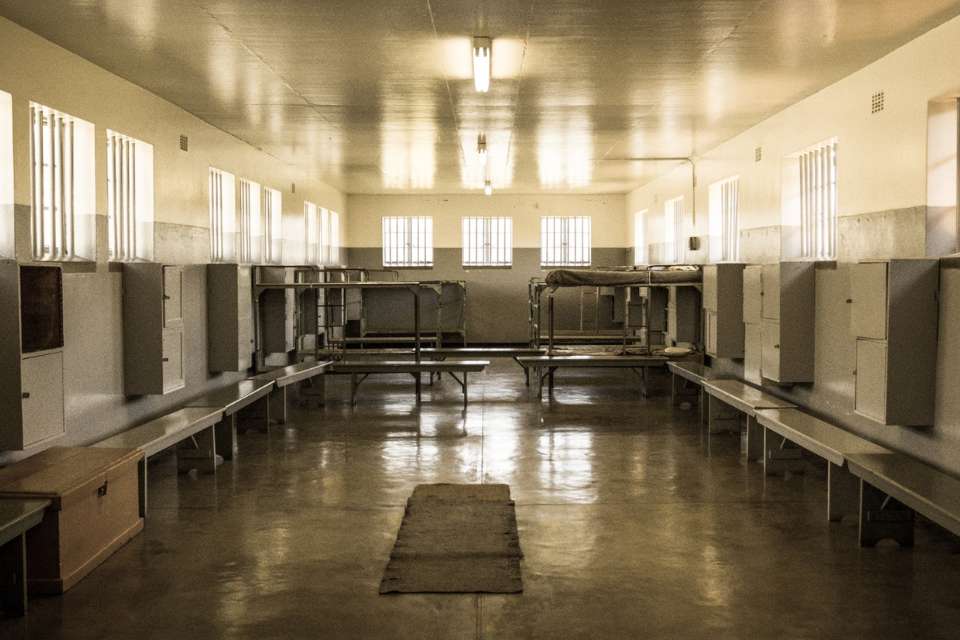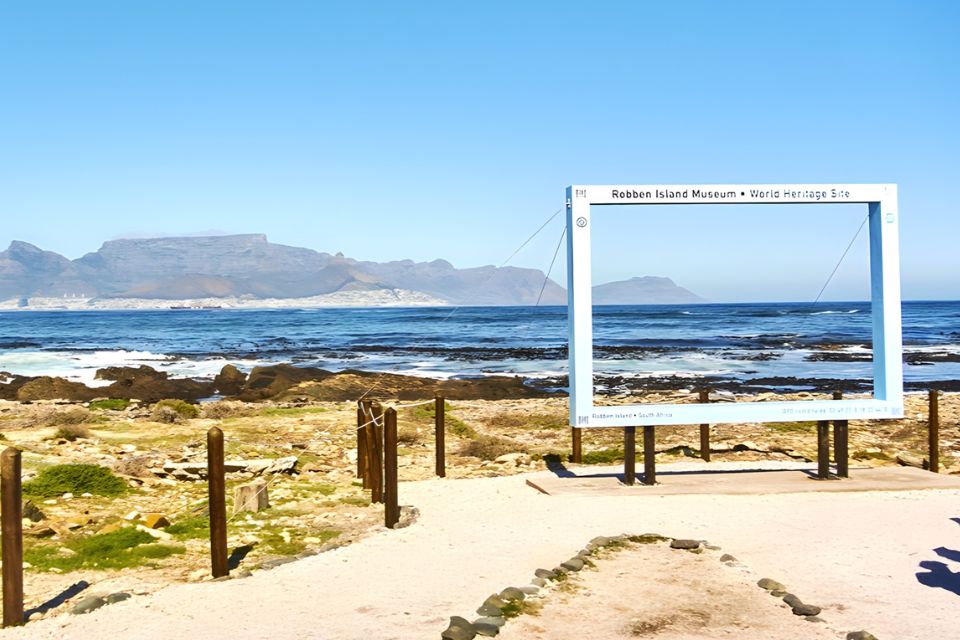Robben Island, located in Table Bay, South Africa, is famous for its historic significance as the site of Nelson Mandela’s imprisonment and as a symbol of resilience.
With a long and complex history, this island has served as a Dutch and British penal colony, a leper colony, and a maximum-security prison for political prisoners during apartheid.
Today, it is a museum and UNESCO World Heritage Site, attracting visitors from around the world.
Key Takeaways:
- Robben Island is known for being the place of Nelson Mandela’s imprisonment.
- It has a diverse history as a penal colony, leper colony, and political prison.
- The island is now a museum and UNESCO World Heritage Site.
- Visitors can take guided tours to learn about the island’s history and struggles.
- Robben Island represents the triumph of democracy and the human spirit.
A Brief History of Robben Island
Robben Island holds a fascinating history that spans centuries. Initially serving as a stopover for passing ships during the 16th and early 17th centuries, it later became a Dutch and British penal colony, housing both common criminals and political prisoners.
However, Robben Island’s most significant chapter unfolded during the era of apartheid in South Africa. Black men who opposed the oppressive regime, including the iconic Nelson Mandela, were imprisoned on the island for their political beliefs.
The prison on Robben Island was infamous for its severe conditions and brutal treatment of inmates. Mandela himself endured 18 of his 27 years of imprisonment within its walls before his release and subsequent election as South Africa’s first black president.
The story of Robben Island is integrally linked to the struggle against apartheid, making it a crucial site for understanding the fight for freedom and equality in South Africa.
Robben Island Museum and Tours

When visiting Robben Island, one cannot miss the opportunity to explore the Robben Island Museum and take part in the guided tours that provide a unique insight into the island’s turbulent past.
The museum offers a comprehensive showcase of the prison cells, including the infamous cell where Nelson Mandela was once held, along with other significant landmarks that played a crucial role in the island’s history.
During the guided tours, visitors have the chance to learn about the struggles endured by political prisoners who fought against apartheid and gain a deeper understanding of the historic battle for freedom.
What makes these tours truly exceptional is that they are conducted by former inmates, adding a personal touch that brings the island’s history to life.
Due to the immense popularity of the Robben Island Museum and tours, it is highly recommended to book your visit in advance to secure your spot.
These tours offer a remarkable opportunity to connect with the island’s past and gain a profound appreciation for the resilience and determination of those who fought against oppression.
Robben Island as a UNESCO World Heritage Site

In 1999, Robben Island was recognized as a UNESCO World Heritage Site, underscoring its universal value and cultural significance. This prestigious designation highlights the island’s role in embodying the triumph of the human spirit, democracy, and freedom over oppression and racism.
An integral part of Robben Island’s historical significance is the imprisonment of Nelson Mandela. Mandela’s long and arduous incarceration on the island, followed by his pivotal rise to become South Africa’s first black president, further solidifies Robben Island’s place in history.
The UNESCO designation ensures the preservation and protection of Robben Island, safeguarding its historical legacy for future generations. Through this recognition, visitors from around the world have the opportunity to learn from its past and appreciate the island’s enduring significance.
The Symbolism of Robben Island
Robben Island holds immense symbolism as a reminder of the struggle for freedom and equality. It stands as a solemn witness to the injustices of apartheid and the unwavering determination of those who fought against it.
This historic island has transformed from a place of imprisonment and oppression to one of hope and reconciliation, symbolizing the triumph of democracy and the indomitable human spirit.
The stories and experiences of the brave individuals who were incarcerated on Robben Island continue to inspire and educate visitors from around the world.
Their resilience in the face of adversity and the sacrifices they made echo through time, reminding us of the importance of justice, equality, and the power of unity.
Robben Island’s significance as a symbol is not limited to its past role as a prison. It represents a beacon of hope, a testament to the strength of the human spirit, and a call for continued efforts to uphold the values of freedom, equality, and social justice.
The island’s transformation serves as a powerful reminder that, even in the darkest of times, there is always the possibility of change and progress.
A visit to Robben Island is not only a journey through South Africa’s tumultuous history but also an opportunity to reflect on the present and shape a better future.
It invites us to confront the injustices of the past, learn from the lessons they teach, and strive for a society that values and respects the rights and dignity of all its citizens.
Exploring the Legacy of Robben Island

Robben Island holds a special place in history, making it famous for its rich heritage and significance. What began as a mere stopping point for ships has evolved into a symbolic destination that captures the human spirit’s resilience.
Over the centuries, the island has undergone a remarkable transformation, serving both as a prison and now as a museum.
A visit to Robben Island allows us to connect with this historic site and delve into its storied past. Here, we can immerse ourselves in the stories of those who endured imprisonment, gain a deeper understanding of the fight against apartheid, and pay tribute to the struggle for freedom.
As we explore the island’s museum, we have the opportunity to witness the prison cells that housed political prisoners, including the iconic cell where Nelson Mandela spent 18 years of his life. Through guided tours led by former inmates, we can grasp the significance of this place and honor the stories that shaped its legacy.
Robben Island’s enduring legacy continues to inspire and educate visitors from all corners of the world. The island’s transformation from a place of oppression to one of hope and reconciliation is a testament to the strength of the human spirit.
By visiting Robben Island, we take part in preserving this history and ensuring that its story lives on. Today, guided tours give us the chance to learn about the island’s past, its role as a prison, and its significance in the fight against apartheid.
It is a journey that leaves an indelible mark, a reminder that the pursuit of freedom and equality is a collective responsibility.
FAQ
What is Robben Island famous for?
Robben Island is famous for its historic significance as the site of Nelson Mandela’s imprisonment and as a symbol of resilience.
What is the history of Robben Island?
Robben Island has served as a Dutch and British penal colony, a leper colony, and a maximum-security prison for political prisoners during apartheid.
What is the Robben Island Museum and can we take tours?
The Robben Island Museum is a museum that offers guided tours, providing visitors with a glimpse into the island’s tumultuous past. Tours are conducted by former inmates.
Is Robben Island a UNESCO World Heritage Site?
Yes, Robben Island was recognized as a UNESCO World Heritage Site in 1999.
What does Robben Island symbolize?
Robben Island symbolizes the struggle for freedom and equality, the triumph of democracy over oppression, and the resilience of the human spirit.
What is the legacy of Robben Island?
The legacy of Robben Island serves as a reminder of the fight against apartheid and continues to inspire and educate visitors.

